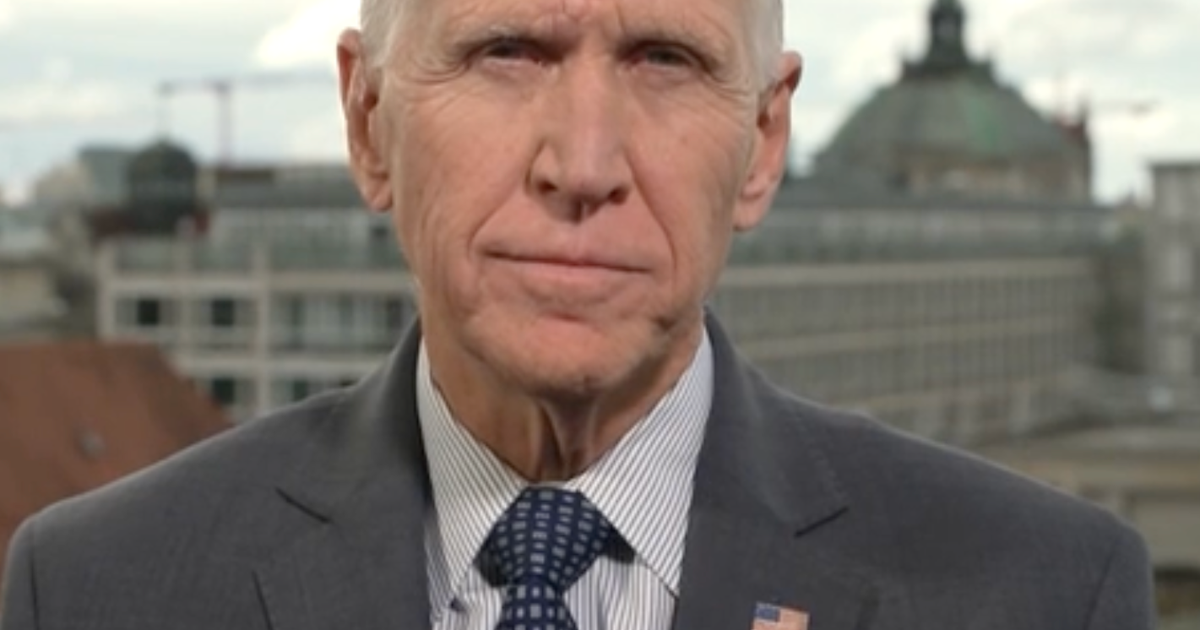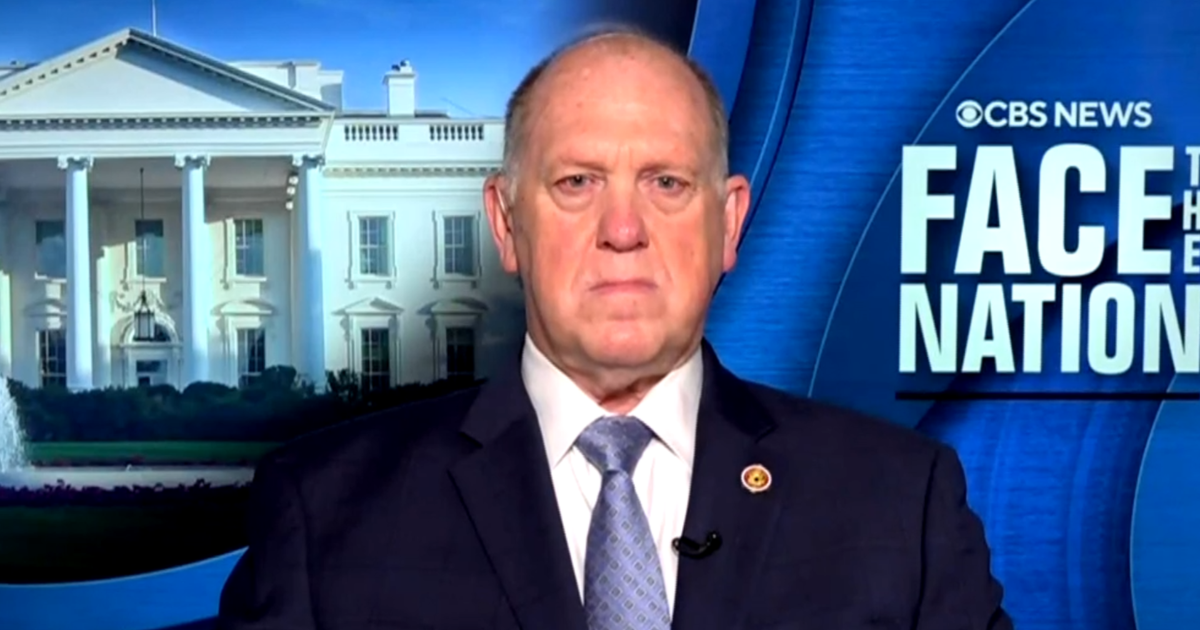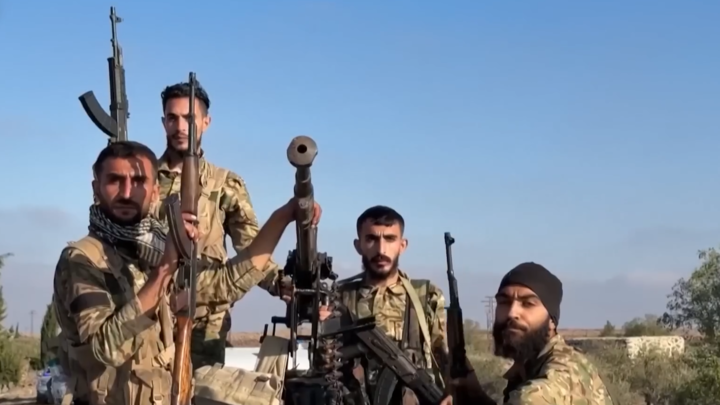Transcript: U.N. Ambassador Nikki Haley on "Face the Nation," April 15, 2018
The U.S. says Friday's missile strikes in Syria set the country's chemical weapons program back years, and Western nations are preparing to impose further sanctions against Syrian President Bashar Assad's government for a suspected chemical attack on civilians a week ago.
U.S. Ambassador to the United Nations Nikki Haley joined us to discuss the U.S. decision to conduct the strikes, negotiations to end the Syrian civil war and more.
The following is a transcript of the interview with Haley that aired Sunday, April 15, 2018, on "Face the Nation."
MARGARET BRENNAN: We're joined now by the U.S. Ambassador to the United Nations Nikki Haley. She is in New York this morning. Good morning to you. Madam Ambassador, the White House said there had been reports that since April of last year there have been at least 30 continued chemical weapons attacks in Syria, some involving sarin. Why did this particular attack last week warrant military action, but the others didn't?
U.S. AMBASSADOR TO THE UNITED NATIONS NIKKI HALEY: Good morning Margaret. Well I think that obviously this was cumulative. He, Assad, had been using chemical weapons multiple times, but more so this was about the Security Council resolutions. We had up until this point had six different resolutions that would have dealt with investigative mechanisms for chemical weapons. And Russia had vetoed all of them. And so we felt like we had gone through every diplomatic measure of talking that we could and it was time for action. And I think one thing that we hope Assad got the message on is the international community will not allow chemical weapons to come back into our everyday life. And the fact that he was making this more normal and that Russia was covering it up all of that has to stop.
BRENNAN: Are there any consequences for Assad's patrons Russia and Iran who continue to protect him?
HALEY: Absolutely. So you will see that Russian sanctions will be coming down. Secretary Mnuchin will be announcing those on Monday if he hasn't already and they will go directly to any sort of companies that were dealing with equipment related to Assad and chemical weapons use. And so I think everyone is going to feel it at this point. I think everyone knows that we sent a strong message and our hope is that they listen to it.
BRENNAN: Well the U.S. strikes, while they hit their targets, they still left the Assad regime in place, along with all those instruments of Russian and Iranian backing. Senator Lindsey Graham who you know well has said he fears this is a weak military response. So what is the U.S. plan for follow up?
HALEY: Well, make no question about it. This was a very strong response. I mean first of all we went after their storage facilities where they kept components. We went after their massive research facility which was the heart of their chemical weapons program and we went after their production facility. So this was very strong attack on the chemical weapons program. We were not looking for war. That's the last thing the president wanted was war. We were not looking to kill people. That was not something that in our American values we would want to do.
We wanted to send a strong message that they needed to stop the chemical weapons program. We wanted with the political and diplomatic actions that we're taking now. We wanted their friends Iran and Russia to know that we meant business and that they were going to be feeling the pain from this as well. But our goal was not to start a war and our goal was not to kill people. Our goal was to send a very strong message to Assad and his friends that we are not going to watch them continue to use chemical weapons on their people.
BRENNAN: But there is concern that there's a risk. Without diplomatic follow up, this just looks like muscle flexing. In your assessment, has Assad won this war?
HALEY: This was not muscle flexing. We set their chemical weapons program back years. So from that standpoint, when we look at threats to national-- our American national interests, we definitely did exactly what we wanted to do. In reference to the civil war--
BRENNAN: But Assad's military has reclaimed the area where these chemical weapons were used. He is declaring victory there.
HALEY: Look, Assad has made inroads in terms of taking back property and land and- and all of those but that's what the Geneva process is for were very involved in the political process of trying to get to a constitution of trying to allow the people to elect who's going to lead them. Our job was never to take Assad out. Our job was never to start a war. And so what we have done is we've continued to stay involved diplomatically. We will see that through in terms of the political solution. From a military standpoint we felt like along with our allies we needed to make a strong message towards them that Russia can cover up in the United Nations, but Russia cannot cover up when it comes to military strikes on Syria. And I think that message was heard loud and clear around the world. And so we feel very good about the message that was sent. It is now up to Bashar al Assad to see if he's smart enough to receive that message.
BRENNAN: When you say the Geneva process that's the Obama era U.N. led process that has been stalled for years that would have Assad eventually negotiate. Are you open to direct talks with the Assad regime between the U.S. and the Assad regime?
HALEY: Well let's be clear, this is a process that's being handled in the United Nations that has been ongoing and constant. So these talks they come together. What has happened up until now is Syria has refused to come to the table to negotiate. But Russia and all of the other actors involved are coming to the table and now it's Russia's turn to deliver Syria to the table for that political process so it's moving. It's not moving near as fast as any of us want it to move. But this is a political process that needs to happen. This is not something that we need to militarily go and- and do regime change. This is something that we have to make sure a political process goes through. The United Nations is the right place to facilitate that because they do bring all of the actors to the table. And you know we all hope for a political solution for the sake of the Syrian people.
BRENNAN: So, no direct talks between the U.S. and Syria at this point?
HALEY: No. And we would never want to have direct talks with Syria at this point. They are not worthy of talks with the United States. They have done nothing but brutalize their people and destroy their land. All in the name of power. And so our goal is that yes we will be at the talks as we have been related to the Geneva process. The United States is always there and will continue to be there. But no, we are not going to have any one on one talks with Assad.
BRENNAN: President Trump says he intends to bring U.S. troops home from Syria. If he does that in the next six months as he said he's wanted to do doesn't that cede the battleground to Iran?
HALEY: Well, we haven't said that we're going to bring them home in six months. What we are saying is at some point we want to see our military come home. That is obviously the end goal. But there are three things that we have to do to get there. First of all the president made it very clear we cannot have chemical weapons usage anywhere and we will continue to combat that in any way we need to protect American interests. Secondly, we want to make sure that-that they understand that ISIS has to be defeated completely and wholly in a way that we know that we have stabilized the region. We have made fantastic progress on that front, but we're not going to stop until we know that that area is free of ISIS. And then thirdly we want to make sure that the influence of Iran doesn't take over the area. They continue to cause problems throughout the region and we want to make sure that there is a hold. The president has asked the allies to step up and do more when it comes to Syria. And so all of these things are being done in the name of bringing our military home.
BRENNAN: Ambassador, the president called the FBI raid on his personal attorney's home an attack on our country in a true sense. He's fired off a number of tweets this morning about the fired FBI director calling him a slimeball suggesting he should be jailed. What is the president's state of mind?
HALEY: Well, I have spent multiple times with the president at the White House and on the phone this past week and his state of mind was very much focused on Syria, chemical weapons, getting the options that were there, making sure we were not doing anything to cause casualties of human life whether it was our allies or of the Syrian people. His focus was very much on making sure we knew all of the information so that we didn't make a misstep and waiting it out to make sure that if we were going to do this, we were going to do it right. That's the only thing I have talked to the president about--
BRENNAN: But is it right to consider this is an attack on our country?
HALEY: Well first of all, I have been drowning in all things Syria, North Korea and Iran. So I can't-- I'm sorry I don't have enough information on anything related to Comey or all of those things. I just-- I haven't watched TV to watch that. I've been very focused on foreign policy. I think the president's been focused on foreign policy from the meetings I have been in. So I can only talk about those issues.
BRENNAN: Alright, Ambassador. Thank you very much.
HALEY: All right. Thanks so much Margaret.



